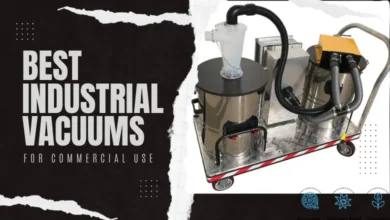5 Processes Suppliers Must Automate for Business Growth

In the modern business landscape, the pursuit of growth and competitiveness is relentless. Suppliers, as crucial components of the supply chain, find themselves under constant pressure to optimize operations, enhance efficiency, and reduce costs. One of the most effective ways to achieve these goals is through automation. In this article, we will delve into five critical processes that suppliers must automate to foster business growth and ensure long-term success.
1. Automating Order Processing and Fulfillment
The heart of any supplier’s operations lies in the seamless management of customer orders. Manual order processing, often prone to errors and delays, can hinder growth prospects. By automating this process, suppliers can significantly improve accuracy and efficiency.
Automation in order processing entails the electronic receipt of customer orders, their verification against inventory levels, and the automated generation of order fulfillment tasks. Additionally, it can enable real-time order tracking, ensuring timely deliveries and reducing customer complaints.
Notably, successful automation in this area translates to faster order turnaround, increased customer satisfaction, and an enhanced competitive edge.
2. Optimizing Inventory Management
Effective inventory management is paramount for suppliers, as it directly impacts costs and customer service levels. Manual inventory tracking can result in overstocking, understocking, and inaccuracies that lead to increased carrying costs and potential stockouts.
Automated inventory management systems provide real-time visibility into stock levels, reorder points, and supplier lead times. With these insights, suppliers can make informed decisions about inventory replenishment, reduce carrying costs, and minimize the risks associated with stockouts.
Automation ensures that the right products are available when needed, enhancing customer satisfaction and enabling suppliers to allocate resources more efficiently for business growth.
3. Enhancing Invoicing and Billing
The invoicing and billing processes are pivotal to a supplier’s cash flow and financial health. Manual invoicing is not only time-consuming but also prone to errors, which can lead to delayed payments and disputes.
Automation in invoicing and billing streamlines these processes by generating invoices automatically and accurately. It ensures that invoices are sent to customers promptly, improving the billing cycle. Furthermore, automated systems can issue payment reminders and track receivables, facilitating timely collections.
By implementing automated invoicing and billing, suppliers can enhance their cash flow, reduce administrative costs, and ultimately fuel their growth initiatives.
4. Deduction Management Automation
Deduction management is a critical but often challenging aspect of supplier operations. Retailers may impose deductions or chargebacks for various reasons, such as pricing discrepancies, damaged goods, or compliance issues. Manual deduction management can be time-consuming, error-prone, and resource-intensive.
Automating deduction management simplifies the process by categorizing, prioritizing, and routing deduction requests to the appropriate personnel or departments for resolution. It also includes validation against contract terms and historical data, ensuring that valid deductions are addressed promptly while invalid ones are rejected automatically.
Automated Dispute Management Software reduces the risk of revenue leakage, enhances customer relationships, and saves valuable time and resources for suppliers, all contributing to business growth.
5. Gaining Supply Chain Visibility
Real-time supply chain visibility is vital for suppliers to identify and mitigate potential disruptions, monitor supplier performance, and make informed decisions. Manual tracking of goods and processes is insufficient in today’s dynamic business environment.
Automation tools provide insights into the supply chain by tracking the movement of goods, monitoring performance metrics, and generating alerts for potential disruptions. Suppliers can access real-time data to optimize logistics, reduce lead times, and ensure compliance with customer requirements.
Enhanced supply chain visibility contributes to better decision-making, increased operational efficiency, and a competitive advantage that drives business growth.
In conclusion, automation is a fundamental driver of business growth for suppliers. By automating critical processes such as order processing and fulfillment, inventory management, invoicing and billing, ar deductions management, and gaining supply chain visibility, suppliers can enhance efficiency, reduce costs, and improve customer satisfaction. Embracing automation is not merely a choice but a strategic imperative for suppliers looking to thrive in today’s competitive landscape. Those who invest in automation will find themselves better positioned for sustainable growth and success.





